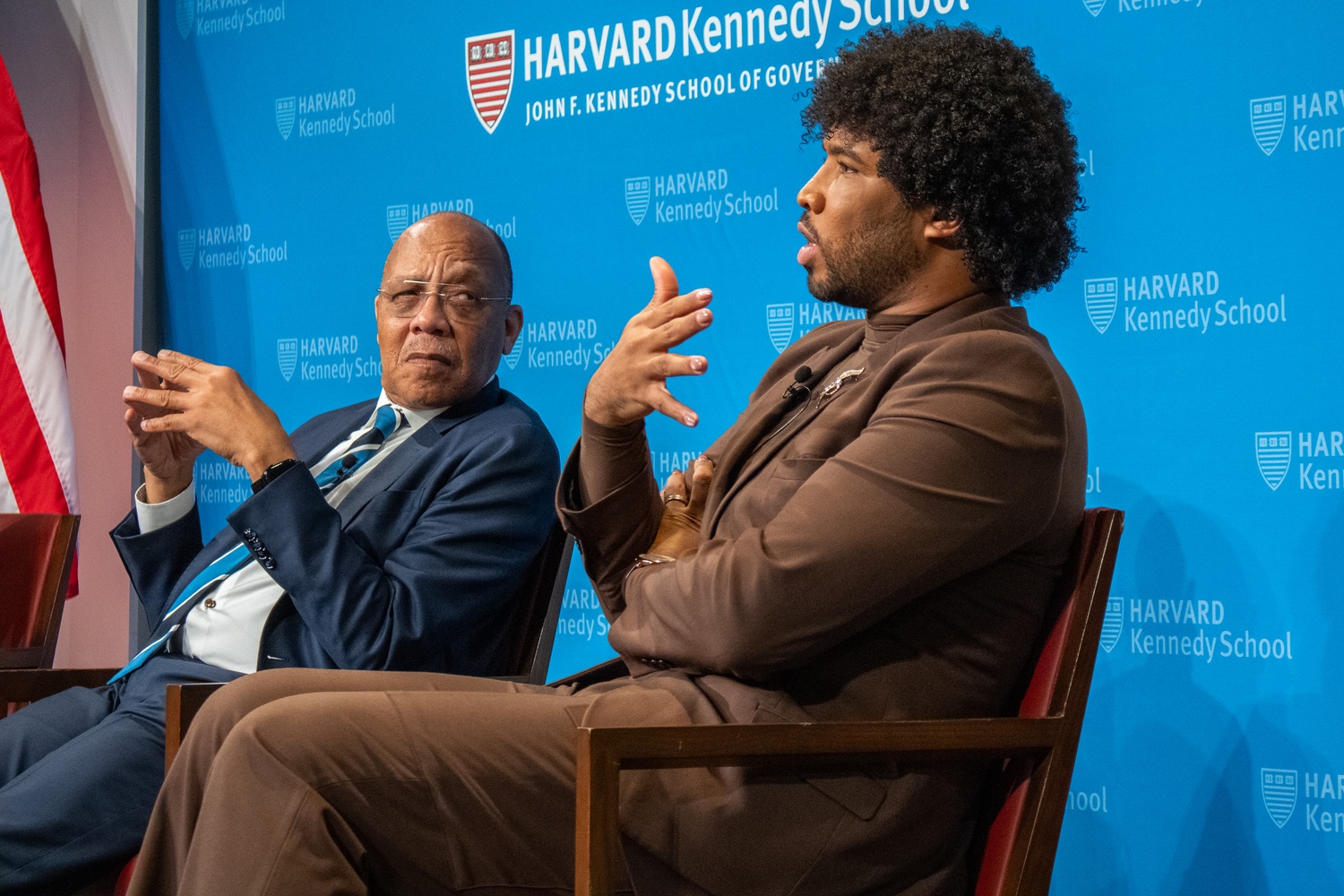
News
Summers Will Not Finish Semester of Teaching as Harvard Investigates Epstein Ties

News
Harvard College Students Report Favoring Divestment from Israel in HUA Survey

News
‘He Should Resign’: Harvard Undergrads Take Hard Line Against Summers Over Epstein Scandal

News
Harvard To Launch New Investigation Into Epstein’s Ties to Summers, Other University Affiliates

News
Harvard Students To Vote on Divestment From Israel in Inaugural HUA Election Survey
Washington Post, Politico Journalists Critique Election Coverage at IOP Forum

Washington Post columnist Eugene Robinson and Politico White House correspondent Eugene Daniels pointed to the loss of local journalism as a factor in the national media’s inability to predict former President Donald Trump’s re-election at a Wednesday night Institute of Politics forum.
During the conversation — moderated by fall 2024 IOP resident fellow Eugene Scott — the panelists acknowledged the media’s underestimation of key voter trends during the election, particularly the support Trump garnered from Black and Latino voters.
“When there were these early indications that Trump’s numbers would go up among African Americans, particularly African American men, I was very, very skeptical,” Robinson said. “I got that wrong.”
Robinson stressed that “so much depends on the messenger,” whether that be the journalist looking to connect with their interviewees or the political candidate looking to connect with voters. He cited Donald Trump as having a “unique ability to communicate with a lot of people” that aided both his presidential run and the Republican victories across the House and Senate.
“If the Democrats find or develop or somehow discover the right messenger and the right message,” Robinson said, “It won’t last forever.”
The panelists offered sharp criticisms of journalistic practices during the election, including Daniels’ emphasis on the media’s failure to maintain consistent voter engagement.
“We don’t focus on the voters enough, right? Like, there is a 18-month span where we all care about what these voters think, and that’s kind of it,” Daniels said.
The panelists also critiqued the lack of local coverage, which generates gaps in political reporting. Daniels lamented the “hundreds, if not thousands, of newsroom jobs that have been lost across the country and in small towns.”
“I’m sick about it,” Robinson said. “We had big, fully staffed bureaus in all the suburban counties of the District of Columbia,” Robinson added, recalling his early career at the Post.
Daniels said he fears the media will fail to detect critical patterns and predict election outcomes if the loss of news jobs continues on the trajectory it has been on since 2016.
The panelists emphasized the shortcomings of practices like parachute journalism, where journalists are dispatched to report on areas and issues without deep knowledge and experience.
“People already don’t trust the media," Daniels said, “and then have somebody like me from Politico parachuting into your town for two-and-a-half days and then going and writing a story as if I know every damn thing.”
Rather than imposing themselves on locals, Daniels said political journalists must prioritize connecting with their interviewees.
“If you cannot talk to someone — Donna at the diner — how do you think you can go and yell a question at Joe Biden, Kamala Harris, or Donald Trump?” Daniels asked. “You can’t. It doesn’t make any sense.”
“Frankly, I think a lot of what is missing out of political journalism is empathy and humility,” he said. “There’s almost none of it.”
Want to keep up with breaking news? Subscribe to our email newsletter.
